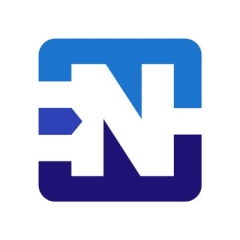What is our primary use case?
I use it as a firewall and also as a router because you can address what you want to do with it. It can do network advanced translation (NAT).
It is sitting on my own server. It is on a remote server on a private network.
How has it helped my organization?
It is very simple to use. I'm working faster now. I don't have to configure a switch and sync some VLANs on the switch. I can concentrate more on my work because I know that pfSense is guarding my network. It improves my workflow a lot.
What is most valuable?
The plugins or add-ons are most valuable. Sometimes, they are free of charge, and sometimes, you have to pay for them, but you can purchase or download very valuable plugins or add-ons to perform internal testing of your network and simulate a denial-of-service attack or whichever attack you want to simulate. You can also remote and monitor your network and see where the gap is. Did you forget a printer port? Most attacks at the moment are happening through printers, and they can tell you immediately that you forgot to close the port of the printer. There are more than one million printers that are in danger, and everybody knows that hackers are using them to enter the network. So, you can download plugins to protect your network.
It is not only a firewall; it can also do some routing or network advanced translation (NAT), which makes it very powerful.
It is very simple to use. As long as you understand the basics or fundamentals of networking, you can manage everything very quickly with it.
What needs improvement?
The web is evolving every day. So, the product should be constantly improved with more regular updates. Things are constantly changing. There are obsolete protocols, and then there are new protocols. For my own use, it is not an issue, but for somebody who is more at the forefront of internet browsing, it could be a problem.
There could be a way to remote to it through a mobile app. You can always browse through your browser on your mobile phone or tablet, but it would be good to have a dedicated app. I understand that iOS and Android developers are expensive, but there should be a mobile app.
For how long have I used the solution?
I have been using this solution since May.
What do I think about the stability of the solution?
It is very stable as long as you don't change the winning theme. When it is working, leave it working. My rule number one is one computer, one function. So, pfSense does that one function, and I don't try to use it for anything else. I could do some File Transfer Protocol or things like that, but it is not made for them. I don't restart it and move it. I only do the security updates and change the username and password very often.
What do I think about the scalability of the solution?
I don't require much scalability. It is fine for a small-scale company with about 30 devices, such as printers, computers, etc. I'm only working with a few people, and I don't have any traffic problems, but a company with 50 or 60 users could have problems with it. Currently, there are four to five users, and I'm providing multimedia services to four to five people.
It is being used extensively. Sometimes, its usage is 50 times a day, and sometimes, there is no usage. I don't work on it on a daily basis. It also depends on the project I'm working on. We have plans to increase its usage.
How are customer service and support?
Which solution did I use previously and why did I switch?
I didn't use any other solution previously. I didn't have a need for it. Only in May, I had the need to deploy my own service.
How was the initial setup?
It is easy to set up if you understand the protocols. If you understand the theory of what is a firewall and what is a router, its initial setup is straightforward.
Its deployment took one week. The strategy was simple. It involved blocking certain traffic, allowing certain traffic, and making ACL or a list of undesired operations such as cookies so that if it is impossible to sniff, and there is complete security. If someone is trying to enter, I immediately get a message on my phone, whether I am in the county or abroad. I immediately get a message saying that somebody is trying to enter, and I am able to counterattack immediately. That's a big advantage of it.
What about the implementation team?
I did it on my own with the advice of some of my friends who have much deeper knowledge than me. It is also very well-documented on the web, and there is a big community.
I am also taking care of its maintenance. I don't have any maintenance except that sometimes, the server on which this solution is implemented has issues. Its maintenance mainly involves regularly checking the systems.
What was our ROI?
There is a big return on investment because FortiGate is 60 to 70 times more expensive, which could be a big problem for me. It is more expensive than my car. I have a small budget and a small car.
What's my experience with pricing, setup cost, and licensing?
It is about €1,000. It is a one-time payment. I do not have a monthly or yearly subscription. I don't subscribe to any subscription because I hate cloud services.
There are no additional costs.
What other advice do I have?
I would advise others to try it and see if it is good for them. It is a very good product for me, but that might not be the case for other users. There are so many solutions, but I'm really happy with it. For my scale, it is good. If you are Amazon or a company with one million connections every minute, don't ever use this. It is not made for that. It is perfect for small-scale networks.
I would rate it a nine out of 10. It needs more regular updates, so I can't rate it a 10, but it is very easy to use, stable, and solid.
Which deployment model are you using for this solution?
On-premises
Disclosure: My company does not have a business relationship with this vendor other than being a customer.

















Actually, pfSense has a pretty logical GUI. Compared to Sophos or Cisco it is easy to understand. Generally, with every security device, you have to know what you are doing.